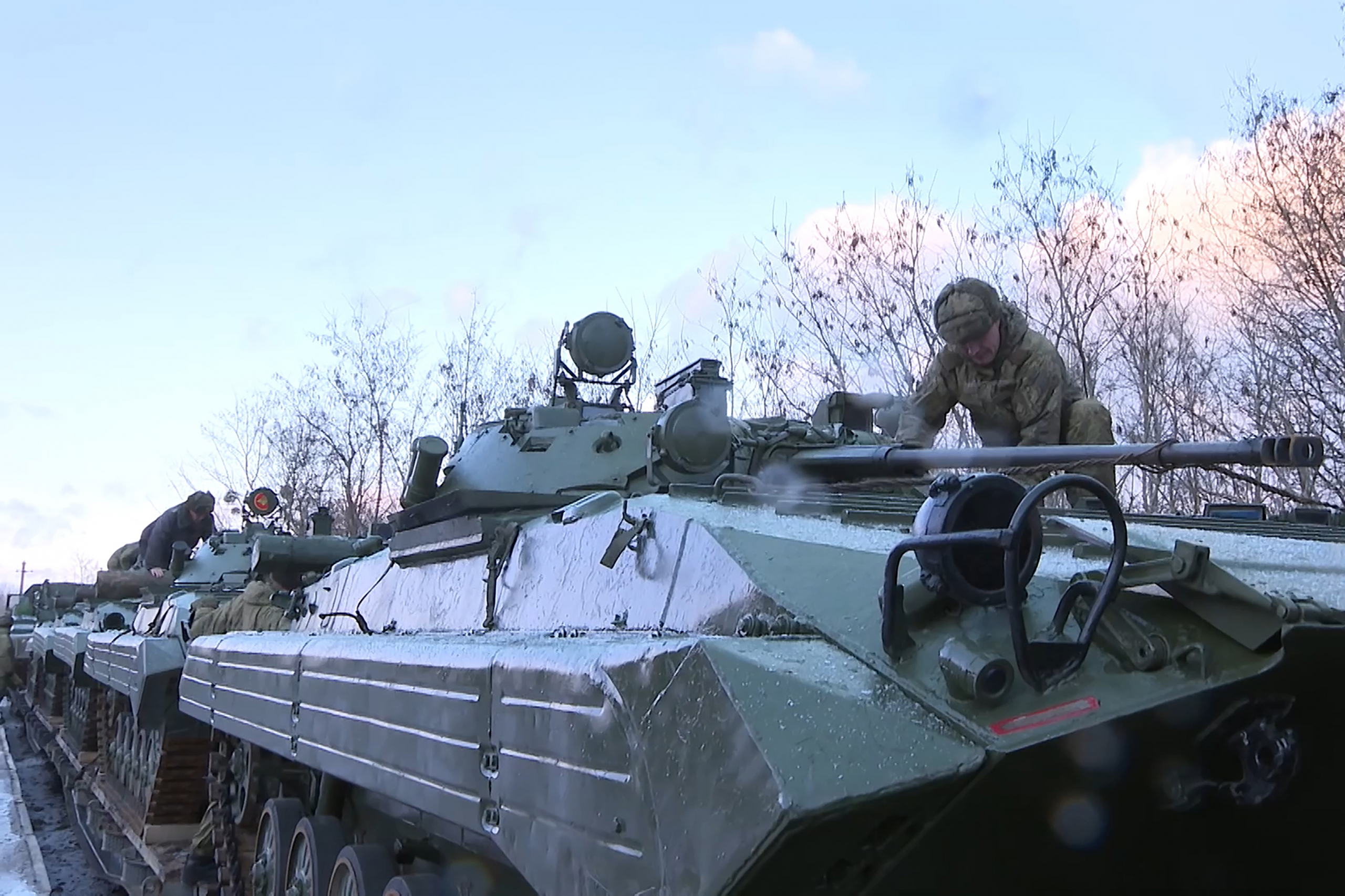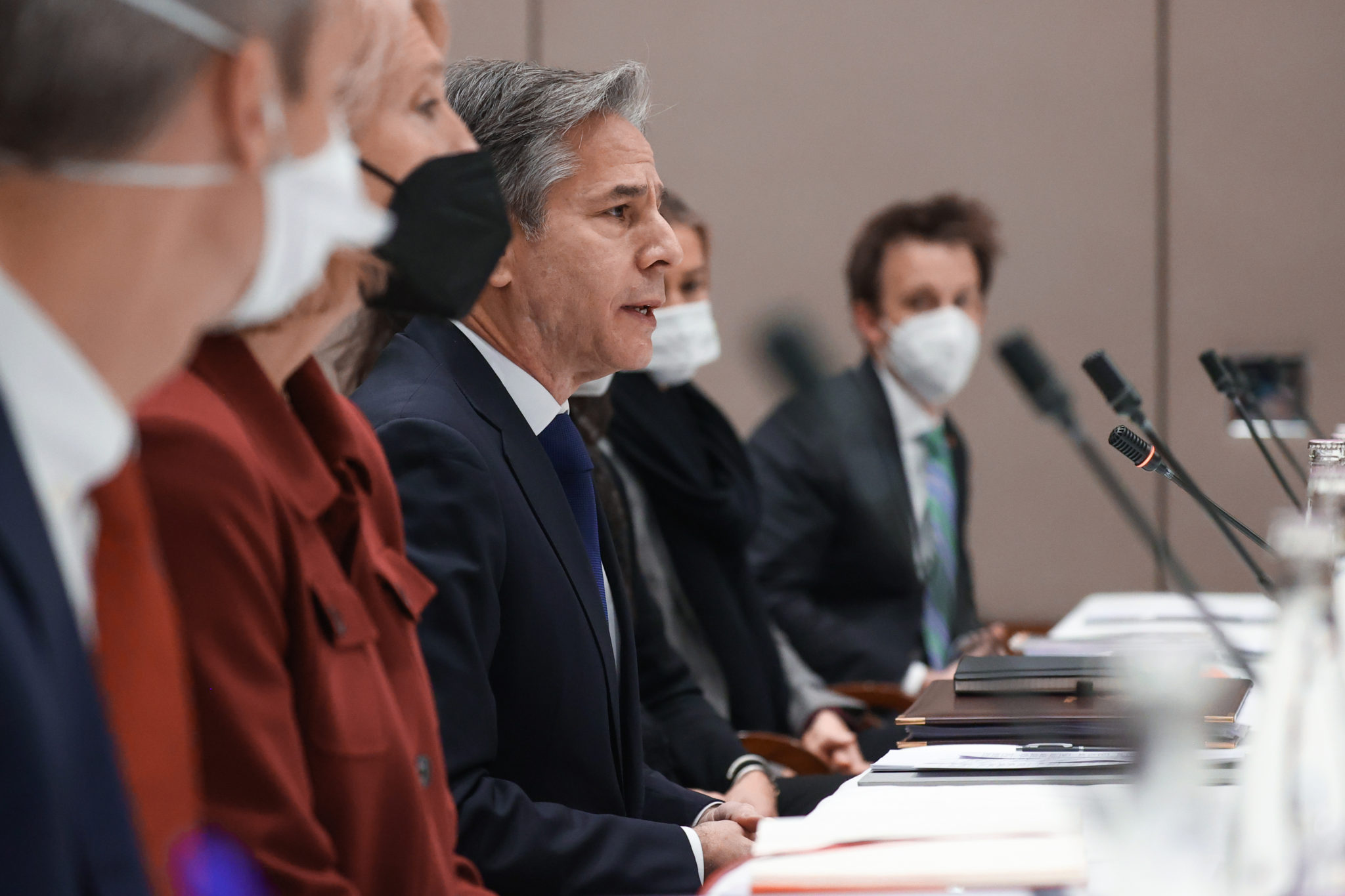In an escalation of activity over the Russian troop accumulation on the Ukrainian border, NATO allies are sending warships and fighter planes to Eastern Europe, and the U.S. State Department has ordered families of embassy staff to leave the country. The directive comes as the department warns an attack could be imminent.
Added to the already turbulent presence of more than 100,000 Russian troops amassed at Ukraine’s borders is a political wildfire that reaches from Germany’s energy sector to the White House lawn.
State Department Orders

(Photo by Russian Defence MinistryTASS via Getty Images)
According to the State Department, non-key workers and the families of embassy staff should leave Kyiv as soon as possible. Also, Americans living in Ukraine are being encouraged to depart. The U.S., however, is still staffing key positions in the country for now.
“Authorized departure gives these employees the option to depart if they wish; their departure is not required … Ordered departure for family members requires that family members leave the country,” the embassy in Kyiv said. The embassy further declared that it will not be in a position to help American citizens leave the country if the situation deteriorates.
A spokesman for the Ukraine Foreign Ministry described the move as “premature” and an example of “excessive caution.”
NATO Prepares
In response to the “deteriorating security situation,” NATO announced it is preparing to send fighter jets and warships to Eastern Europe as part of a “collective defense” strategy. Secretary-general of the treaty group, Jens Stoltenberg, said:
“NATO will continue to take all necessary measures to protect and defend all allies, including by reinforcing the eastern part of the alliance. We will always respond to any deterioration of our security environment, including through strengthening our collective defence.”
In response, Russia’s deputy foreign minister, Alexander Grushko, blasted the deployments, saying the alliance was “demonizing Russia” to “justify military activity on [NATO’s] eastern flank.”
“The language of NATO is the language of threats and military pressure,” he continued. “This is nothing new.”
The US Govt. Stance
On Thursday, January 20, following talks with his Russian counterpart, Secretary of State Antony Blinken said the U.S. would consider any Russian movement across Ukraine’s border “a renewed invasion” that will be “met with swift, severe, and a united response from the United States and our partners and allies.”

(Photo by Russian Foreign Ministry Press Service/Handout/Anadolu Agency via Getty Images)
Speaking on Face the Nation, Blinken stated that Russian President Vladimir Putin must choose between the “preferred path of diplomacy and dialogue” or “Russian aggression and massive consequences.” However, he demurred on whether the U.S. response would include forces on the ground. Back in December, President Biden said that boots on the ground was not in the cards.
Sanctions?
To date, Joe Biden has insisted that sanctions are the most feasible method of controlling Russian aggression in the region, although he did authorize $200 million in “lethal aid” last month that includes weaponry and other equipment.
Critics have suggested that the time to apply sanctions has come and gone, and that a delayed response weakens American power. Blinken, however, sees things somewhat differently. “Once sanctions are triggered, you lose the deterrent effect,” he said.
It is not clear how much support U.S. sanctions would receive from partners in Europe. Germany, in particular, is heavily reliant on Russian oil and gas to bolster its energy supplies. Should financial sanctions be applied – specifically dealing with how Russia can collect payments – the flow of energy might be severely disrupted. Germany is the driving force of the European Union, and without a complete commitment from the Scholz government, questions remain as to the effectiveness of Biden’s potential sanctions.
This is a developing story and Liberty Nation will keep you updated with further news and analysis.
~ Read more from Mark Angelides.



